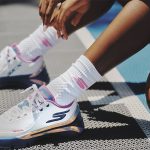The American Apparel & Footwear Association, the Footwear Retailers & Distributors of America, the National Retail Federation, the Retail Industry Leaders Association, and the United States Fashion Industry Association released a study that calls out the detrimental economic impacts of Section 301 tariffs.
According to the report, American businesses and consumers were adversely affected by punitive tariffs that began in 2018. The report takes an in-depth assessment of the impacts from the Section 301 tariffs over the last four years on U.S. imports of apparel, footwear, travel goods, and furniture coming in from China. It is based on U.S. government data and responses to a December 2022 survey of American companies sourcing goods from China.
The study makes three key findings:
- The negative impact of the tariffs, higher costs and higher prices, fell on U.S. companies and Americans;
- The tariffs led to indirect costs, including those with attempts to establish bifurcated supply chains;
- Increased prices on consumer goods created a greater negative impact on American households for which those goods represent greater shares of household income—households in the lowest 20 percent of income groups, minority-headed households and households headed by individuals without a college education; and
- Tariffs on U.S. imports of apparel, footwear and travel goods were among the highest in the U.S. tariff code, even absent in the Section 301 duties on U.S. imports from China.
The tariffs most heavily impacted U.S. imports from China of waterproof footwear. The tariffs imposed an annual direct cost on U.S. importers of over $250 million, increasing yearly to over $450 million in 2022. No footwear tariff exclusions were granted to mitigate the negative impacts of the tariffs on footwear-sourcing companies. According to Mercatus Center, all 442 footwear product exclusion requests filed were denied.
To access the study, go here. For additional findings, go to #TariffsHurt.














